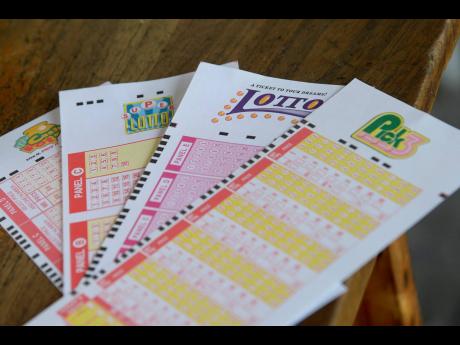Kristen Gyles | Bigger bets, bigger winnings?
Whether it’s as mild as “Smoking can be hazardous to your health” or as piercing as “Smoking kills”, almost all cigarette packets today bear a label notifying potential buyers of the risks associated with smoking. Notwithstanding, smoking is still the leading cause of preventable deaths in many countries. Obviously, people are still buying cigarettes, but at least they do so having been warned of the risks associated with lighting a cigarette.
Transparency in marketing and advertising, contrary to the fears of some commercial entities, does not necessarily reduce business. It just repositions the target audience away from those whose needs don’t truly align with the product being sold and towards those who actually need or want the product.
The Betting, Gaming and Lotteries Commission (BGLC) has initiated a consultation process to introduce guidelines surrounding the marketing and advertising of gambling-related products. Not only does the introduction of clear advertising standards warrant applause, but the proposed consultation process actually involves the inclusion of ordinary Jamaicans who have views to share. This is quite refreshing, considering the used, reused, and overused word ‘consultation’ was starting to lose its meaning in Jamaica.
The Commission has proposed a list of marketing and advertising guidelines and Jamaicans can give their feedback on the proposal and make other inputs or contributions via an online survey available on the Commission’s website. The survey will close today, December 1.
As a background to the proposed guidelines, the Commission engaged two local research agencies to conduct independent research into the link between gambling as an activity and advertising relating to gambling, with a special focus on youth and the vulnerable across the society.
Some of the research findings show that, especially among lower income groups consisting of both the unemployed and underemployed, people place bets as their main source of income or to supplement their main source of income. One survey question asked by Bluedot Insights, one of the research teams engaged, was “What is your main reason for taking part (in gambling)?” Just over 20 per cent of the respondents said they needed money to help with bills and day-to-day cash flow. Ignoring the glaring misconception that gambling is much like a job that delivers a fortnightly or monthly cheque, this response demonstrates that a significant proportion of gamblers engage in gambling because of monetary constraints. They see gambling as a way to take care of their families and put food on the table. But isn’t this exactly what some gambling operators want people to believe?
I personally recall an ad being aired on local television during the recent COVID-19 pandemic which suggested that the game of focus was helping people to “put dem pot pon fire”. Of course, there was no mention of the many pots that got taken off the fire on account of gambling losses.
Then there is the issue of blatant misconceptions surrounding gambling risks, that are in the best cases left unaddressed, or in the worst cases perpetuated by some gambling operators. In response to the same question posed by Bluedot Insights, a much smaller group of respondents said they engage in gambling because they see it as “a test of skill and judgement”. This harmonises with the number of Jamaican gamblers who meticulously keep records of past winning numbers in perpetuity, obviously because they see some correlation between all the past draws and tomorrow’s winning number which will undoubtedly be theirs. What exactly are we calculating when each ‘winning number’ is a result of a purely random draw?
SUPERSTITION
And then, closely related to the issue of miseducation is the role superstition plays in Jamaican gambling.
One game, very popular for its appeal among the most superstitious among us, which attaches a symbol to each number that can be betted on, had a catchy advertisement back in the day. The jingle encouraged players to “open up” their eyes because “everyting around mek winning easy”. The rare sighting of a rat, goat or white woman was and still is enough to send many on a trip to the gambling house.
People have their beliefs, but I’m not so sure about encouraging and reinforcing superstitions that will keep people under the spell of gambling away their money simply because it makes good business.
Thankfully, the reason regulatory agencies like the BGLC exist is to safeguard the interests of people, who sometimes do not even know what they don’t know. This is clearly not to say gambling-related products should not be advertised, but certainly not in ways that promulgate false ideas about gambling or that target vulnerable groups.
There is also a very negative stigma, true or not, that gambling-related marketing and advertisements tend to be misleading or untruthful. Ads were described by some participants in the research as being persuasive and as perpetuating false hope. Dangling the unlikely prospect of massive winnings without ever mentioning the potential for losses through assertions such as “the more money yuh bet, the bigger the winnings” will inevitably mislead some but it also fosters mistrust and scepticism in others.
Within a context where nearly 40 per cent of survey respondents indicated that they learned about gambling as a direct result of advertising, the BGLC is right in seeking to address a damning perception of deception in gaming advertising. It is also justified in seeking to reduce the potential for gambling operators to exploit broad and ambiguous laws and regulations on marketing and advertising, none of which pertain specifically to gambling.
Hopefully at some point, the move towards improving the advertising and marketing landscape for betting, gaming and lotteries will lead to increased efforts to improve the general understanding of gambling risks.
Kristen Gyles is a free-thinking public affairs opinionator. Send feedback to kristengyles@gmail.com

